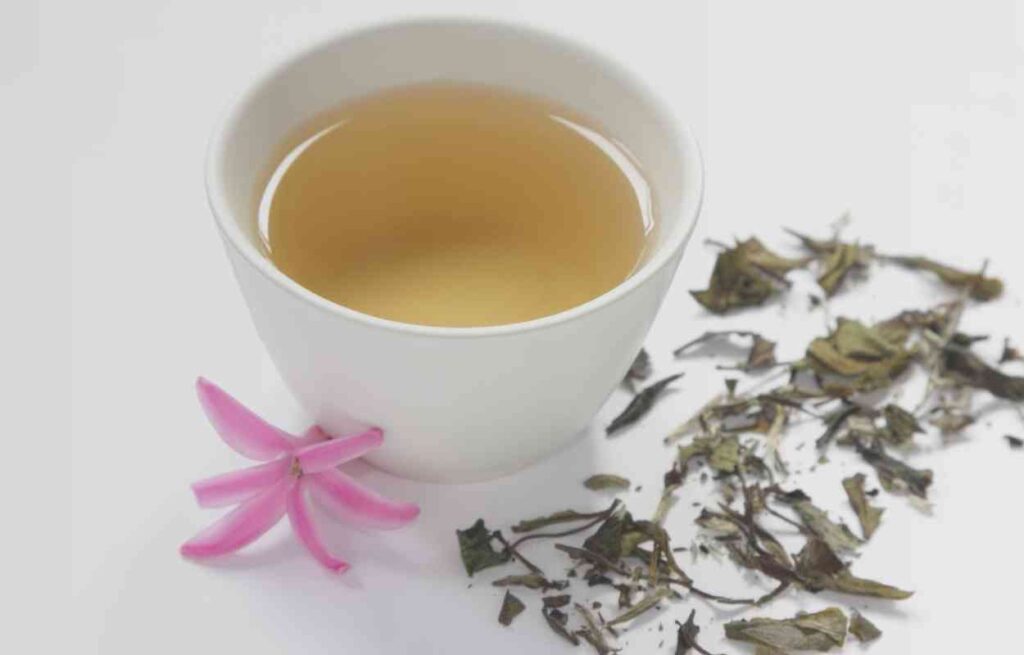Can You Freeze White Tea?
When it comes to preserving the delicate flavor and aroma of white tea, the question arises: Can You Freeze White Tea?
Freezing white tea is generally not recommended as it can compromise the delicate flavors and aromas of this delicate beverage. The freezing process can lead to the breakdown of volatile compounds and potential dilution when thawed.
To preserve its quality, it is advisable to store white tea in a cool, dry place outside the freezer, ensuring optimal taste and aroma for an extended period of up to one year.

Why Freeze White Tea?
Freezing white tea is not typically recommended due to the potential degradation of its delicate flavors and aromas. However, in some cases, freezing may be considered for long-term storage purposes, especially if the tea is at risk of spoiling or if a large quantity needs to be preserved.
Properly cooling the tea before freezing, using airtight containers, and thawing slowly can help mitigate some negative effects. Nonetheless, it is generally advised to store white tea in a cool, dry place to maintain its optimal quality.
Does White Tea Freeze Well?
White tea does not freeze well due to its delicate nature. The freezing process can adversely affect its subtle flavors, aromas, and overall quality.
Freezing can lead to the breakdown of volatile compounds and potential dilution when thawed. It is recommended to store white tea in a cool, dry place to maintain its delicate characteristics and ensure an enjoyable tea-drinking experience.
How Do You Defrost White Tea?
Defrosting white tea requires a cautious approach to maintain its delicate qualities. To defrost white tea, transfer the frozen container from the freezer to the refrigerator and allow it to thaw slowly over several hours or overnight.
Avoid rapid thawing methods like a microwave or hot water, as they can negatively impact the tea’s flavors and aromas. Once fully defrosted, gently stir or shake the container to ensure any settled sediments are evenly distributed.
Finally, brew the defrosted white tea as you normally would and enjoy its subtle and nuanced flavors.
How to Tell If White Tea Is Bad?
To determine if white tea has gone bad, it’s crucial to assess its sensory qualities and examine any visible signs of deterioration. Here are indicators to look for:
- Aroma: Fresh white tea exhibits a delicate, pleasant aroma. If the tea emits a musty or sour smell, it may have gone bad.
- Appearance: Examine the tea leaves or buds. If they appear discolored, moldy, or have an unusual texture, it is a sign of spoilage.
- Taste: Brew a small amount of the white tea and taste it. A spoiled tea will have an off or rancid flavor, noticeably different from its original taste profile.
- Storage conditions: Consider the storage conditions. If the white tea was exposed to excessive heat, moisture, or air, it may have deteriorated more quickly.
How Long Can White Tea Last?
White tea, when stored properly, can maintain its quality for an extended period. While its precise shelf life can vary depending on factors such as storage conditions and specific tea variety, white tea can generally last for up to two years.
To maximize the lifespan of white tea, it is crucial to store it correctly. Store white tea in a cool, dry place away from direct sunlight, strong odors, and humidity. Airtight containers, such as opaque jars or tins, can help prevent exposure to air and moisture, preserving the tea’s flavors and aromas.
It is important to note that as time passes, white tea may gradually lose some of its delicate characteristics. The tea’s flavor may be mellow, and its aroma may diminish. However, if stored properly, white tea can still provide a pleasant drinking experience even after a couple of years.
To ensure optimal freshness, it is advisable to consume white tea within the first year of purchase. Regularly check the tea’s appearance, aroma, and taste to assess its quality. If the tea shows signs of spoilage, such as mold, off flavors, or a rancid smell, it should be discarded.
Wrap Up.
To summarize, while freezing white tea is technically conceivable, it is generally not recommended due to the probable deterioration of its delicate flavors and smells.
Freezing can cause volatile chemical breakdown and dilution upon thawing. White tea should be stored in a cold, dry environment in airtight containers to preserve its wonderful properties.
This preserves the tea’s optimal flavor and aroma, resulting in a great tea-drinking experience.
